
My time as pastor of IDC concluded just over six weeks ago. Much has happened in the intervening time. We took our first-ever family vacation; a two-week jaunt to and from Muskegon, MI where my grandparents live. The kids loved Lake Michigan and the cool summer weather. We joined Redeemer PCA here in McKinney. Our children were baptized last Lord’s Day. I’m helping to teach a Sunday School class on the doctrine of Scripture this fall and leading a small group through Everyday Church. The shepherds and saints at Redeemer have been marvelous to fellowship and worship with.
But the overwhelming part of my life is spent in Ph.D. work. I am, for the first time, very much a full-time Ph.D. student.
Theology, Spirituality, and History
I wake up each day at 4:00 a.m. After prayer and Bible reading, I dive into my dissertation on Robert Murray M’Cheyne. I’m almost done with the second chapter. I often get asked, “What’s your thesis on M’Cheyne?” The broad answer is that I’m looking at how M’Cheyne’s Christology bears on his piety. A more narrow version is my assertion that, for M’Cheyne, personal holiness is the mature expression of love to Christ.
I initially thought of my work as a reinterpretation of M’Cheyne’s piety. I felt too few noticed the centrality of love to Christ as the animating passion in M’Cheyne’s spirituality. Yet, the more I research, the more I saw how many did mention the centrality of Christ. I’m convinced, however, that no one has yet adequately emphasized and demonstrated this focus. I tend to think it’s because most works have leaned on his private writings (diary and letters) to the exclusion of his sermons where the emphasis is undeniable. So, I now think of the project more as reorientation than reinterpretation. I’m contending that you cannot understand M’Cheyne unless you see his piety as laced with a romantic Christology. M’Cheyne’s passion for Christ humbles me every day.
Around 10:30 a.m. I shift from the dissertation to studying for comprehensive exams. My major is Biblical Spirituality with a minor in Christian Worship. The respective study guides for comps have made it clear I need to know a fair amount of about all kinds of things in every era of church history. It often feels daunting—as it should. Studying for comps sometimes feels a climb up Mt. Everest while writing on M’Cheyne is a climb up Pike’s Peak.
Thus, from 4:00 a.m. to 3:00 p.m. I’m in the study. It’s taxing work for sure, but it has to be done.
If you ever think about it, I’d sure appreciate prayer for diligence and comprehension.
Off to the Archives
 I leave this weekend for a two-week study trip in Edinburgh, Scotland. New College Library holds M’Cheyne’s papers, and I’ll be in the Funk Reading Room all day looking at them. I’m particularly interested in a collection of sermons and some theological notebooks he kept. Lord willing, I’ll finish my work in the library a couple of days early, which will allow me to spend the last two days taking in all the incredible sights.
I leave this weekend for a two-week study trip in Edinburgh, Scotland. New College Library holds M’Cheyne’s papers, and I’ll be in the Funk Reading Room all day looking at them. I’m particularly interested in a collection of sermons and some theological notebooks he kept. Lord willing, I’ll finish my work in the library a couple of days early, which will allow me to spend the last two days taking in all the incredible sights.
If you ever think about it, I’d sure appreciate prayer for my wife and five children while I’m away.
In the Waiting Room
As I study Scripture, it seems the basic posture of the Christian life is one of waiting. We wait for God’s promises to pass. We wait for prayers to be answered. We wait for growth in grace. We wait for the conversion of friends and families. We wait for the Lord’s return.
Our family is still waiting for God to reveal what’s next for us. I won’t be a Ph.D. student much longer. We still believe Christ has commissioned me to preach the gospel and shepherd some of His sheep. We don’t know where—or when—He’ll open a call to ministry. So, we wait—imperfectly, but prayerfully and patiently.
If you ever think about it, I’d sure appreciate prayer for God to send us into a new field of pastoral labor. We are eager.
—————————————————————————————————————-
Save
Save


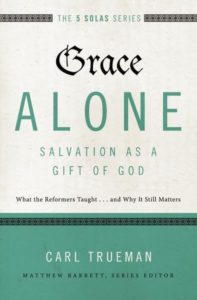







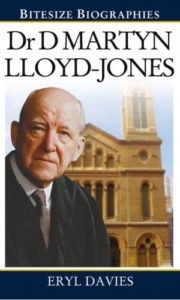


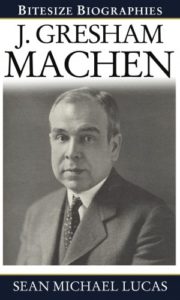











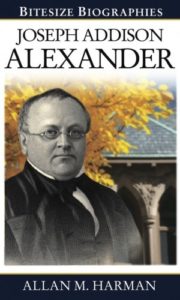






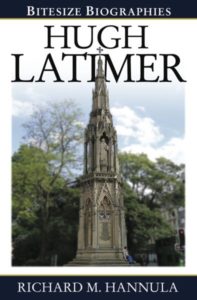

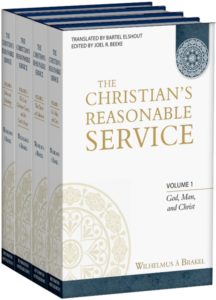 I remembered à Brakel’s skill in heart-searching application earlier this week as I prepared to teach a Sunday School class on the doctrine of Scripture. I glanced around the study and grabbed the usual Reformed suspects I dialogue with when preparing a lecture: Calvin, Dabney, Hodge, Bavinck, Vos, and Murray. I find these men leading me to drink at theology’s deep wells. But they don’t always invite you to jump in and swim. The Christian’s Reasonable Service, however, always summons you to a deep theological and doxological dive.
I remembered à Brakel’s skill in heart-searching application earlier this week as I prepared to teach a Sunday School class on the doctrine of Scripture. I glanced around the study and grabbed the usual Reformed suspects I dialogue with when preparing a lecture: Calvin, Dabney, Hodge, Bavinck, Vos, and Murray. I find these men leading me to drink at theology’s deep wells. But they don’t always invite you to jump in and swim. The Christian’s Reasonable Service, however, always summons you to a deep theological and doxological dive.

 I leave this weekend for a two-week study trip in Edinburgh, Scotland. New College Library holds M’Cheyne’s papers, and I’ll be in the Funk Reading Room all day looking at them. I’m particularly interested in a collection of sermons and some theological notebooks he kept. Lord willing, I’ll finish my work in the library a couple of days early, which will allow me to spend the last two days taking in all the incredible sights.
I leave this weekend for a two-week study trip in Edinburgh, Scotland. New College Library holds M’Cheyne’s papers, and I’ll be in the Funk Reading Room all day looking at them. I’m particularly interested in a collection of sermons and some theological notebooks he kept. Lord willing, I’ll finish my work in the library a couple of days early, which will allow me to spend the last two days taking in all the incredible sights.